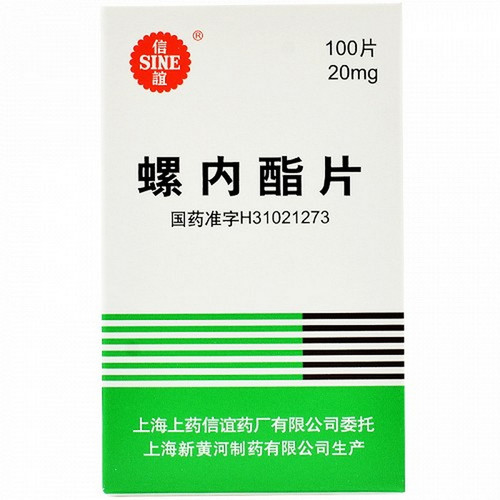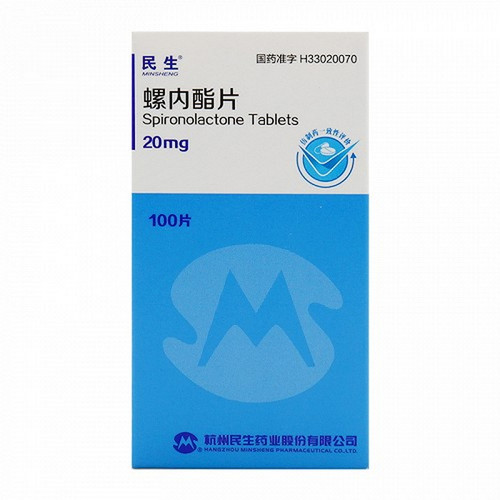Product Overview
[Drug name]
Generic name: Compound gossypol acetate tablets
Trade name: LeiDiXin Compound gossypol acetate tablets 20mg*5 tablets
Pinyin full code: LeiDiXin FuFangCuSuanMianFenPian 20mg*5Pian
[Main ingredients]
This product is a compound preparation, which consists of: gossypol acetate, potassium chloride, vitamin B1, vitamin B6.
[Properties]
This product is a film-coated tablet, which is yellow after removing the coating.
[Indications/Main functions]
It is used for functional uterine bleeding, uterine fibroids with menorrhagia and endometriosis, and the resulting dysmenorrhea, heavy menstruation, long menstruation, breast pain during menstruation, abdominal pain, etc.
[Specifications]
20mg*5 tablets
[Usage and dosage]
Oral. 1 tablet at a time, once a day. Take after dinner. 30 days is a course of treatment, and the usual course is ≤6 courses.
[Adverse Reactions]
Gastrointestinal reactions such as hypokalemia, muscle weakness, loss of appetite, nausea, vomiting, palpitations, and mild changes in liver function may occur; it may cause menopausal symptoms such as amenorrhea, loss of libido, hot flashes, skin itching, sweating, etc.
[Contraindications]
1. Pregnant and lactating women are prohibited. 2. Elderly patients are prohibited. 3. Those who are allergic to this product are prohibited.
[Drug Interactions]
1. This product should not be taken with barbiturates, phenytoin, and chloramphenicol. 2. Long-term use of this product or taking it with other antipyretic and analgesic drugs may increase the risk of renal toxicity. 3. If you are taking other drugs, please consult a physician and pharmacist before using this product.
[Precautions]
1. Use with caution in patients with abnormal heart, liver, and kidney function. 2. If hypokalemia occurs, potassium salts can be supplemented orally or intravenously according to doctor's advice. 3. Long-term use of this product should pay attention to blood potassium and electrocardiogram testing.
[Children's Use]
Children under 3 years old should not use this medicine because of their underdeveloped liver and kidney functions.
[Elderly Patients' Use]
Old people are more sensitive to chlorpheniramine and should reduce the dosage as appropriate.
[Overdose]
Overdose should be closely monitored for side effects and poisoning, and blood pressure, pulse, respiration and body temperature should be monitored. If more than 8 tablets are taken, symptoms such as nausea, vomiting, stomach pain or stomach cramps, diarrhea, anorexia, and hyperhidrosis may occur quickly and may last for 24 hours. Liver damage occurs within 2 to 4 days, manifested as pain in the liver area, hepatomegaly, and jaundice. In case of overdose, gastric lavage, vomiting, large amount of fluid supplementation and diuresis, acidification of urine to increase drug excretion should be performed immediately, and acetylcysteine, an antagonist of acetaminophen, should be given. Activated carbon should not be given because it may affect the absorption of antidotes; acetylcysteine is first taken orally at 140mg/kg, and then 70mg/kg is taken once every 4 hours, for a total of 17 times; intravenous administration can be used in severe cases, and antagonists should be used early. The effect is satisfactory within 12 hours, and the effect is poor after more than 24 hours. Other symptomatic and supportive therapies should be given at the same time. Observe for excessive movements, convulsions, arrhythmias, and hypotension, and give sedatives, anticonvulsants, and antiarrhythmic drugs as needed. To control the symptoms of central nervous system poisoning, physostigmine can be slowly injected intravenously.
[Pharmacology and Toxicology]
Acetaminophen can inhibit the synthesis of prostaglandins and has antipyretic and analgesic effects; amantadine can resist "sub-type A" influenza virus and inhibit virus reproduction; caffeine is a central nervous system stimulant, which can enhance the antipyretic and analgesic effects of acetaminophen, and can reduce the central nervous system inhibitory effects such as drowsiness and dizziness caused by other drugs; chlorpheniramine maleate is an antiallergic drug that can relieve symptoms such as runny nose, nasal congestion, and sneezing; artificial bezoar has antipyretic and tranquilizing effects. The above drugs are combined to make a compound prescription, which can enhance the antipyretic and analgesic effects and relieve or improve various symptoms caused by colds.









